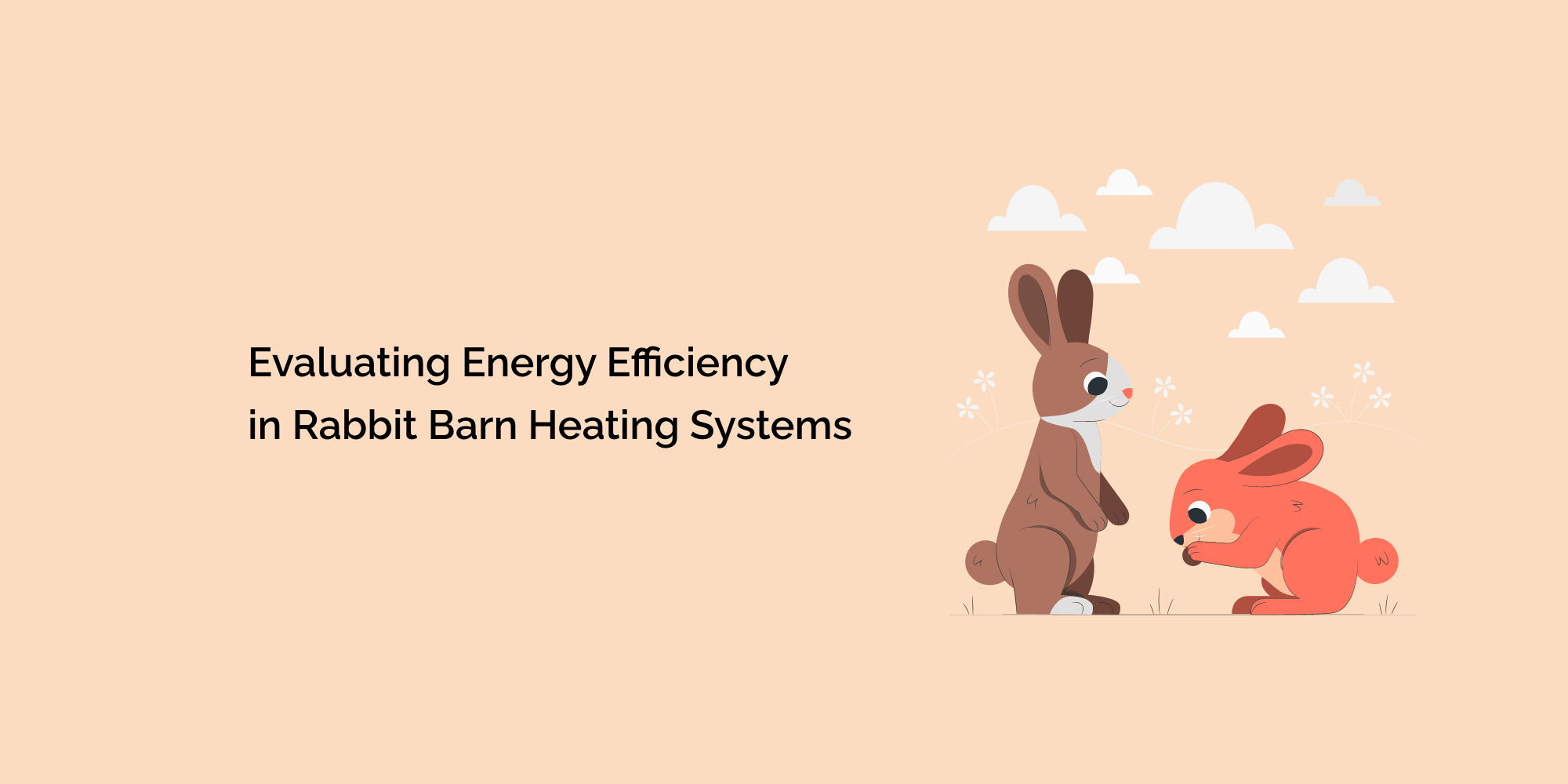Efficient heating systems are crucial for maintaining a comfortable and healthy environment for rabbits in barn settings, especially during colder months. However, heating can be a significant energy expense for rabbit farmers. Evaluating the energy efficiency of heating systems is essential to optimize performance, reduce operational costs, and minimize environmental impact.
In this comprehensive blog, we will delve into the key factors that contribute to energy efficiency in rabbit barn heating systems and explore various strategies to enhance overall efficiency.
Importance of Energy Efficiency in Rabbit Barn Heating
Understanding Heating Requirements
Rabbits have specific temperature needs, and it is vital to provide them with a stable and suitable environment to ensure their health, productivity, and overall well-being.
The Impact of Energy Consumption
Heating is a significant component of energy consumption in rabbit barns. Understanding the implications of energy use is crucial for optimizing heating systems and reducing overall operational costs.
Factors Affecting Energy Efficiency in Heating Systems
Heating System Type
Exploring different heating system types, such as radiant heating, forced-air heating, and hot water heating, and their respective efficiencies in rabbit barns.
Insulation and Air Leakage
The importance of proper barn insulation and the impact of air leakage on energy efficiency. Discussing strategies to improve insulation and seal potential air leakage points.
Heating System Size and Capacity
Matching the heating system's size and capacity to the barn's specific requirements is crucial to avoid energy wastage.
Heating System Controls
The significance of advanced heating system controls and thermostats for precise temperature regulation and energy optimization.
Assessing Heating System Efficiency
Energy Consumption Measurement
Methods to measure energy consumption accurately and track heating system performance over time.
Calculating Heating Efficiency
Guidelines for calculating the heating system's efficiency, including the annual fuel utilization efficiency (AFUE) for fuel-fired systems.
Benchmarking and Comparison
Comparing the energy efficiency of different heating systems, models, and fuel sources to make informed decisions.
Strategies for Enhancing Energy Efficiency
Regular Maintenance and Cleaning
The importance of regular heating system maintenance and cleaning to ensure optimal performance and energy efficiency.
Zoning and Temperature Management
Implementing zoning strategies to heat specific areas within the barn based on the rabbits' needs, reducing overall energy consumption.
Heat Recovery Systems
Exploring the benefits of heat recovery systems to capture and reuse waste heat from ventilation or other processes.
Energy-Efficient Lighting
The role of energy-efficient lighting in reducing overall energy consumption and its impact on the heating system's efficiency.
Renewable Energy Integration
Integrating renewable energy sources, such as solar panels or biomass boilers, to supplement or replace traditional heating systems.
Case Studies and Real-Life Examples
This section will showcase real-life examples of rabbit farmers who have successfully implemented energy-efficient heating systems, highlighting their experiences, challenges, and the outcomes of their initiatives.
Economic and Environmental Benefits of Energy Efficiency
Cost Savings and Return on Investment
The economic advantages of energy-efficient heating systems, including potential cost savings and improved return on investment.
Environmental Impact
The positive environmental impact of energy efficiency in heating systems, including reduced greenhouse gas emissions and resource conservation.
Long-Term Sustainability and Future Considerations
This section will discuss the importance of adopting energy-efficient practices as part of a long-term sustainability plan and highlight potential future developments in heating technology.
Conclusion
In conclusion, evaluating energy efficiency in rabbit barn heating systems is crucial for optimizing performance, reducing operational costs, and promoting sustainability. By understanding the factors that affect energy efficiency, regularly assessing heating system performance, and implementing strategies to enhance efficiency, rabbit farmers can create a comfortable and environmentally responsible environment for their livestock.
Energy-efficient heating systems not only benefit the bottom line but also contribute to a healthier planet by reducing energy consumption and environmental impact. As responsible stewards of the environment, it is essential to prioritize energy efficiency in all aspects of rabbit farming, including heating.








